GMAT Mini Practice Tests - GMAT Prep AI Simulation
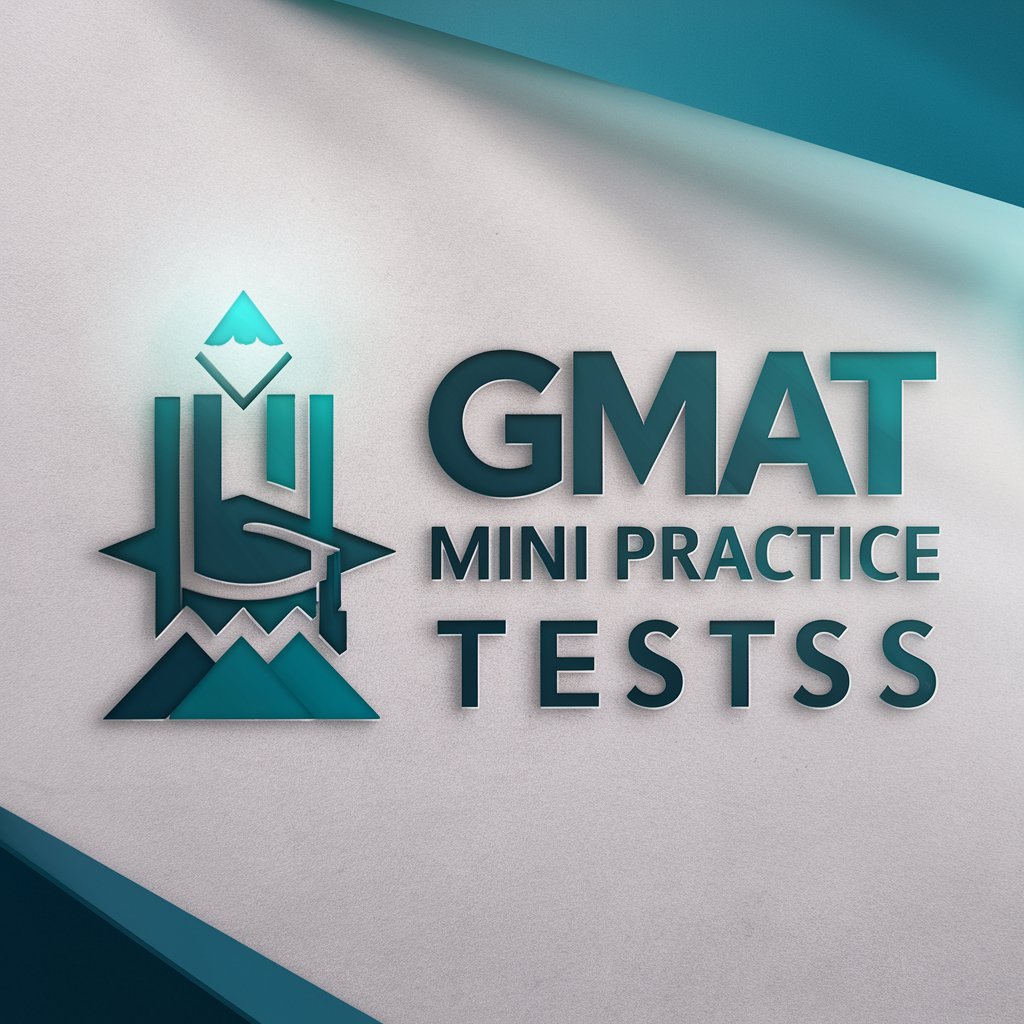
Welcome to GMAT Mini Practice Tests! Ready to sharpen your skills?
AI-Powered GMAT Practice Anytime
Start a mini practice test for the GMAT Quantitative Reasoning section.
Begin a set of 10 questions for Verbal Reasoning on the GMAT.
Let's start a mini test focusing on Integrated Reasoning for the GMAT.
Initiate an Analytical Writing mini practice test for the GMAT.
Get Embed Code
Overview of GMAT Mini Practice Tests
GMAT Mini Practice Tests is a specialized tool designed to aid individuals preparing for the GMAT by providing concise, targeted practice tests covering the four main areas of the exam: Quantitative Reasoning, Verbal Reasoning, Integrated Reasoning, and Analytical Writing. Each mini-test consists of 10 questions representative of the GMAT style and difficulty, simulating the exam environment in a condensed format. This tool helps users manage their time efficiently and focus on specific areas of the test. For instance, a user can choose to practice just the Quantitative section to hone their mathematical skills or take a mixed test to assess their overall readiness. Powered by ChatGPT-4o。

Key Functions of GMAT Mini Practice Tests
Quantitative Reasoning Practice
Example
Includes problem-solving and data sufficiency questions typical of the GMAT.
Scenario
A user struggling with data interpretation can use these mini-tests to focus specifically on improving these skills by repeatedly solving similar question types under timed conditions.
Verbal Reasoning Practice
Example
Features sentence correction, reading comprehension, and critical reasoning questions.
Scenario
A non-native English speaker could practice complex sentence structures and paragraph comprehension to enhance their verbal skills ahead of the GMAT.
Integrated Reasoning Practice
Example
Presents multi-source reasoning, table analysis, graphics interpretation, and two-part analysis.
Scenario
A user can practice integrating data from different sources to make well-reasoned decisions, an essential skill for modern business environments, reflected in real GMAT scenarios.
Analytical Writing Assessment
Example
Offers practice prompts for crafting analytical essays.
Scenario
A user preparing for the AWA section could use these prompts to practice structuring their essays clearly and logically, receiving a time-based simulation similar to the actual test.
Target User Groups for GMAT Mini Practice Tests
GMAT Aspirants
Individuals planning to take the GMAT, especially those who are in the early or mid-stages of their preparation. These users benefit from frequent, focused practice that helps identify strengths and weaknesses in specific test areas.
Working Professionals
Busy professionals aiming to pursue an MBA who need an efficient way to prepare for the GMAT amidst a hectic work schedule. Mini tests allow them to utilize short study sessions effectively.
Non-Native English Speakers
Individuals for whom English is not the first language and who require specific practice in verbal reasoning and analytical writing to improve their language skills for the GMAT.
Short-term Preparers
Users who have limited time before their actual GMAT test and need to quickly assess and enhance their readiness across various sections of the exam.

How to Use GMAT Mini Practice Tests
Initial Access
Visit yeschat.ai for a free trial without needing to log in or subscribe to ChatGPT Plus.
Select a Section
Choose from Quantitative, Verbal, Integrated Reasoning, or Analytical Writing sections to begin your practice.
Answer Questions
Engage with one question at a time per section, simulating the real GMAT test environment.
Submit Responses
Submit your answers as you complete each question to record your response and move to the next question.
Review Scores
After completing a section, review your score for immediate feedback on your performance.
Try other advanced and practical GPTs
SAT Mini Practice Tests
Sharpen SAT skills with AI-powered precision
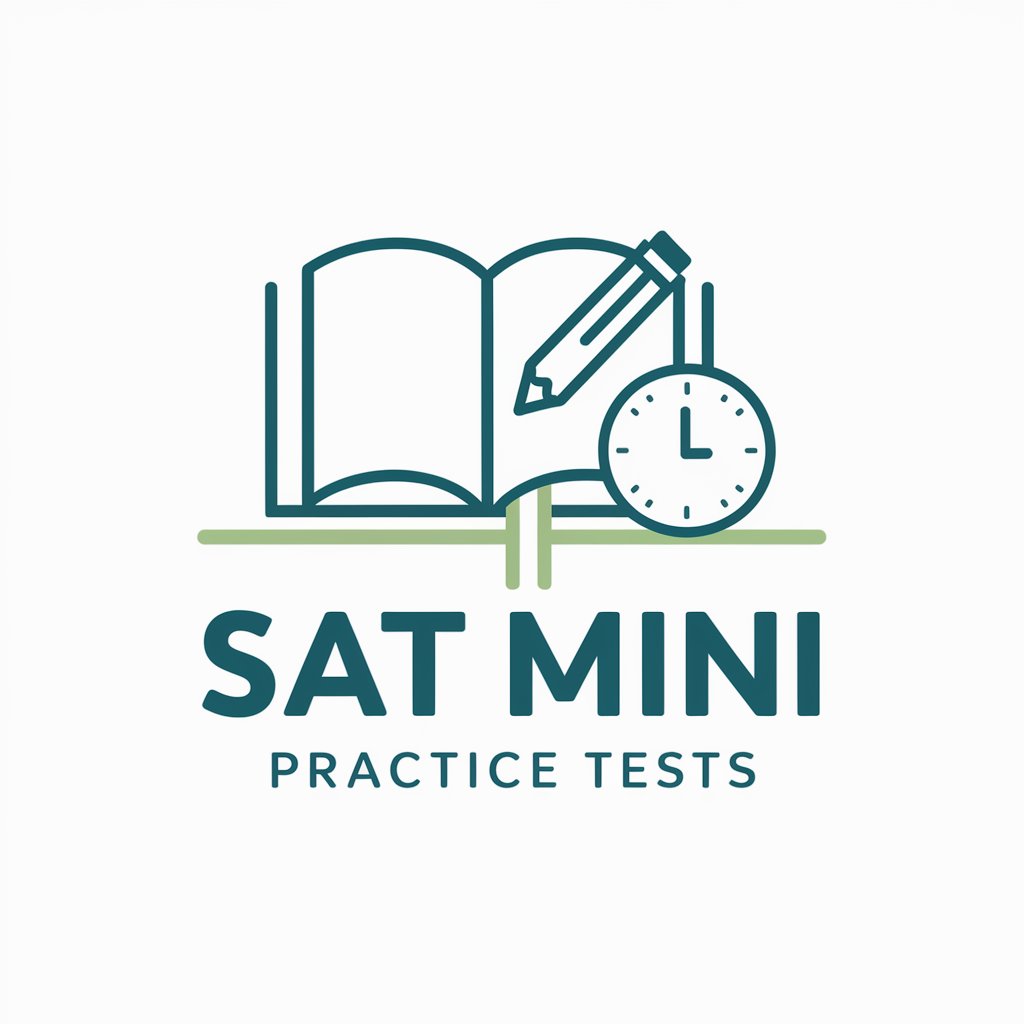
👤Description of Personality Tests
Unlock Your Personality with AI

💻 Imba Integration Tests Guide
Automate, Validate, Innovate

Nests meaning?
Unlock Knowledge with AI

What if?
Reimagine Your Favorite Comics with AI

Atlas Frontier
Elevate Your Brand with AI-Powered Content

GRE Mini Practice Tests
AI-driven GRE Test Practice
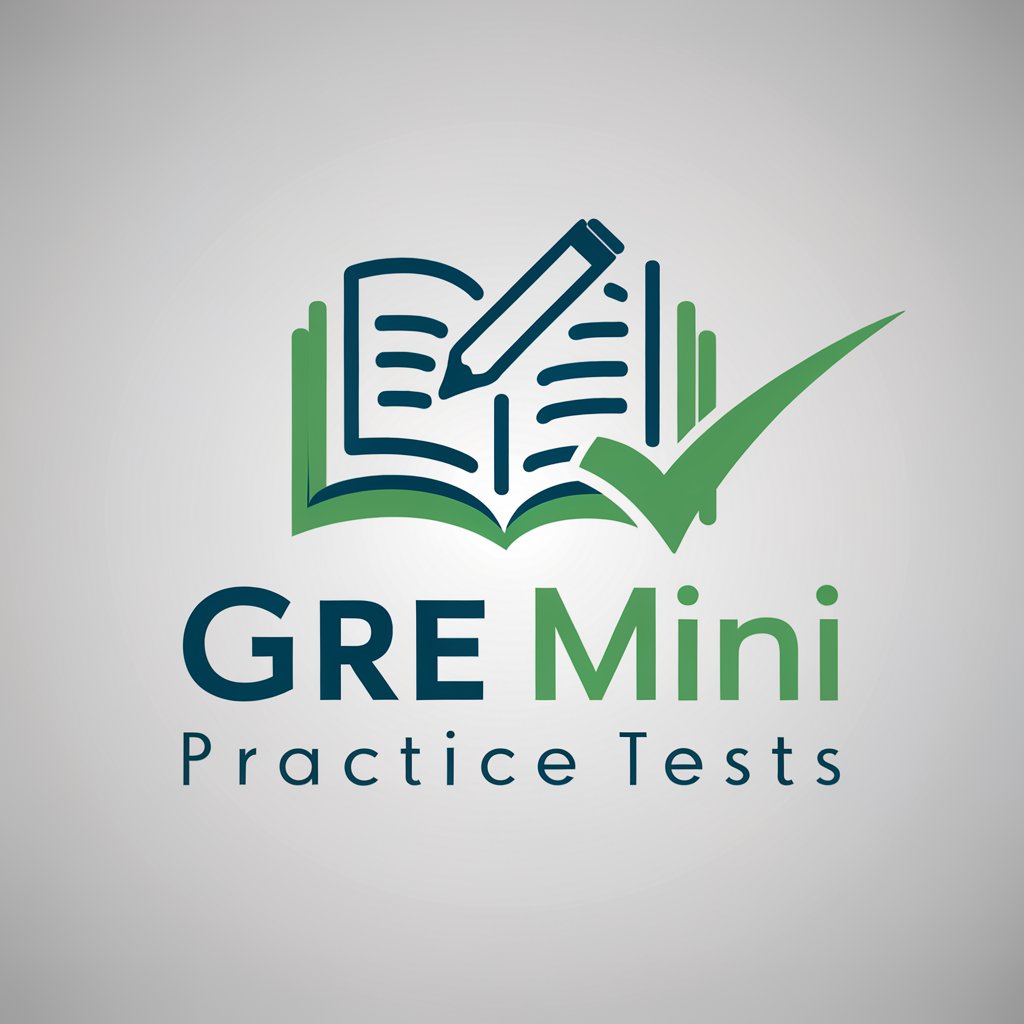
ACT Mini Practice Tests
Elevate Your ACT Score with AI
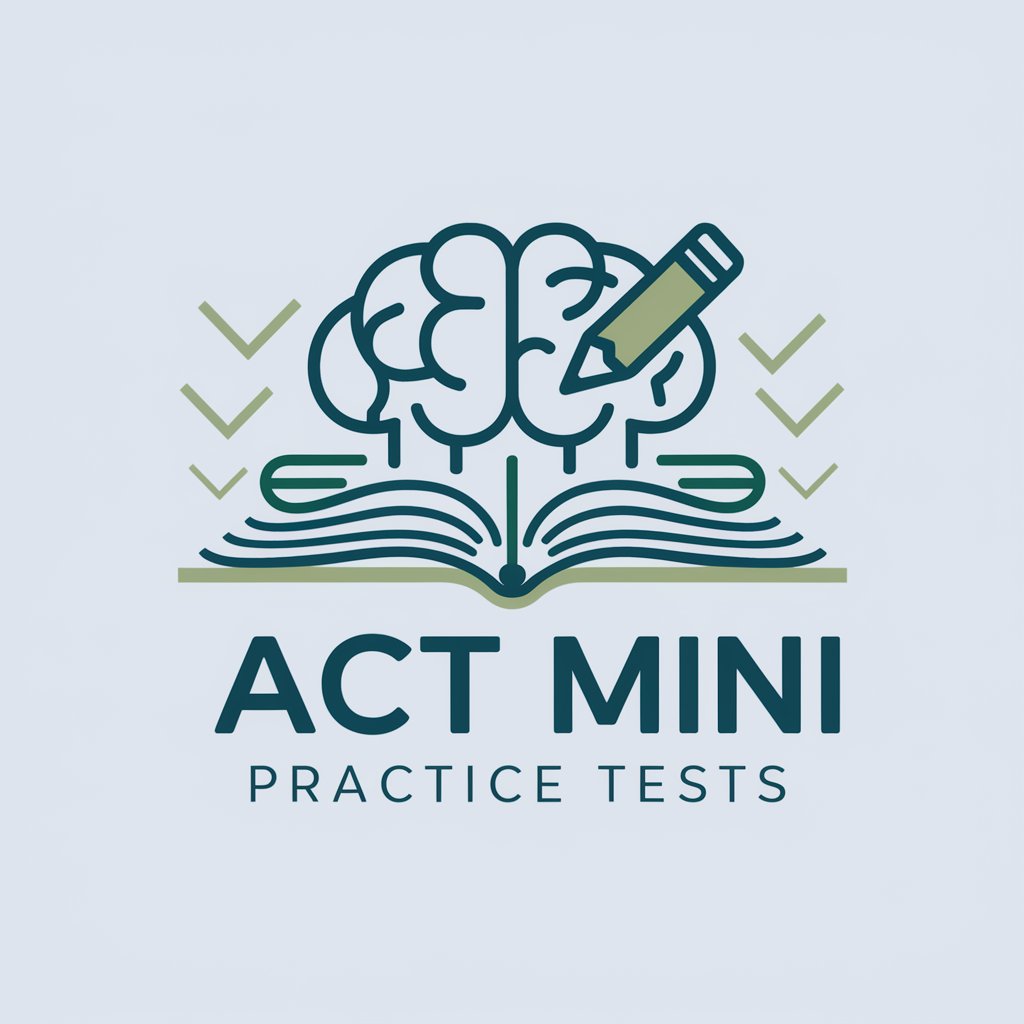
QLD Biology Data Tests
Enhancing Biology Learning with AI

GED Mini Practice Tests
AI-Powered GED Test Preparation
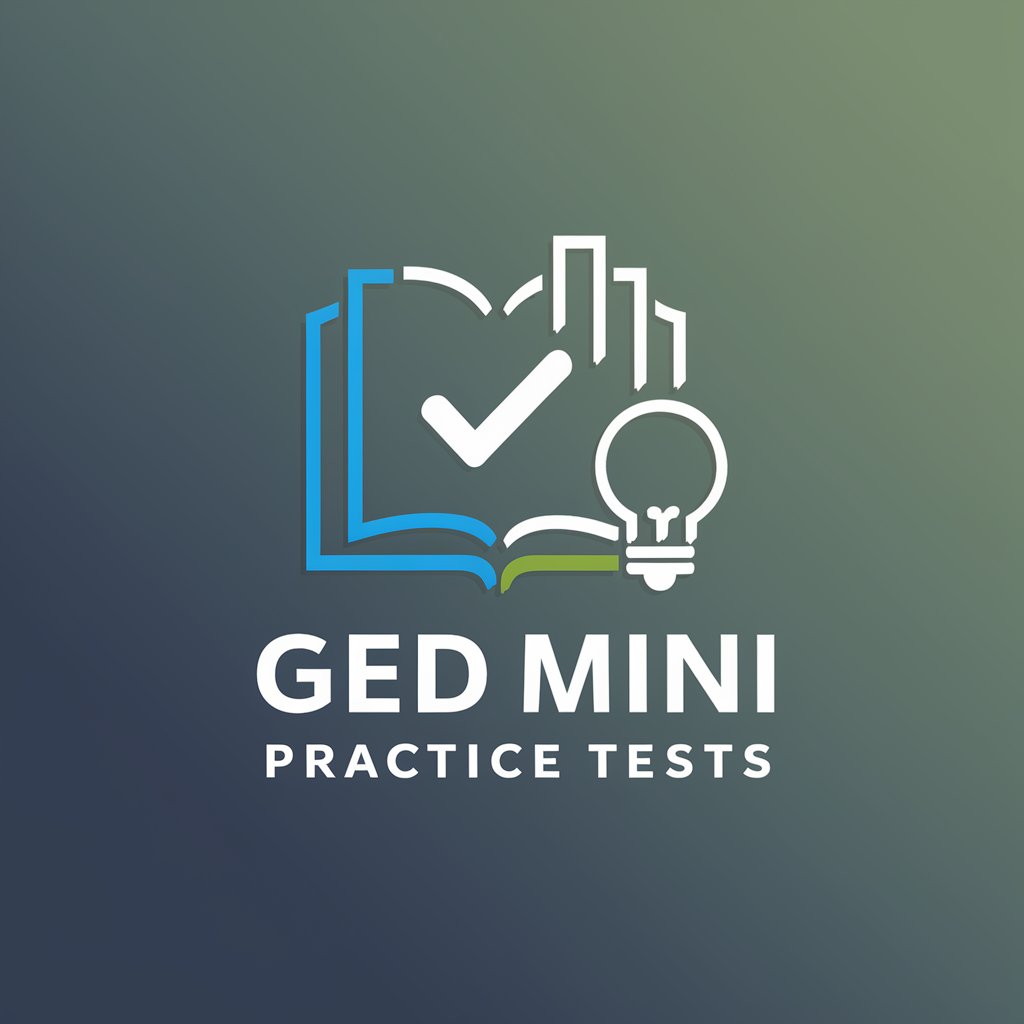
QLD Physics Data Tests
Empowering Physics Education with AI

Angular Unit Tests
Empowering Angular development with AI-driven testing

Detailed Q&A on GMAT Mini Practice Tests
What types of questions can I expect in the Quantitative section?
The Quantitative section includes problem solving and data sufficiency questions, focusing on arithmetic, algebra, and geometry.
How many questions are in each mini practice test?
Each section of the mini practice test contains 10 questions, designed to be concise yet challenging.
Can I pause between questions during a practice test?
Yes, you can pause after any question; however, for the most effective practice, we recommend completing a section in one sitting.
Is there a way to track my progress over time?
While individual test scores are provided immediately, tracking long-term progress would require manually noting your scores over time.
Are the GMAT Mini Practice Tests updated regularly?
The tests are designed with a static set of questions intended to remain relevant and challenging, mirroring the consistent nature of the actual GMAT.
